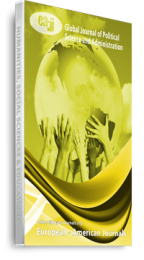In recent years specifically beginning from 2009 Borno and its neighbouring states of; Adamawa, yobe, Gombe and Bauchi all in north east Nigeria have experience steadily growth in insecurity yoke as a result of what initially started as a protest by a radical Islamic group the Jamaatul ahlussunah liddawati wal jihadi popularly known as the Boko Haram . The group accused the Nigeria security operatives of extra-judicious killing its spiritual leader Muhammad Yusuf. By 2014 the boko haram activities have reached its climax as the insurgents have taken control over 17 local government areas in Borno state, seven in Adamawa state and two others in yobe state thereby forcing many residents of the affected communities to flee for safety and settled in relatively safe areas as Internally Displaced Persons (IDPs) . One of the area’s most hit by the insurgency is social fabric of the affected communities. It is against this background that this study assesses the social cohesion and reintegration challenges affecting selected communities in Borno state. This study depends on primary data sourced from the internally displaced persons: community leaders, traditional leaders, women groups, youth’s groups, civilian JTF and Government officials. The major instruments for the research are: key informant interview (KII) and Focused Group Discussions (FGD). The KII was conducted with 20 respondents in each of the selected local government areas: In the case of the FGD five groups were selected in each local government area .The study revealed the experience of the IDPs as a nightmare scenario, the most challenging, unpleasant and nasty moment which include lack of access to sustainable livelihood (shelter, food and water) and forced migration In addition to unprecedented poverty, and complete dependence, family dislocation, psychological trauma as a result of disconnection with parents other family members and relations in addition to gory scenes of killings and inhuman torture and gender based and sexual violence including rape and abduction. Similarly the IDPs have also shown overwhelming zeal and desire to return and re-unite with other members of the communities with whom they have lost contact for more than five years although with apprehension of infiltration by some elements of the Boko-haram insurgents. The major obstacles to social cohesion and reintegration however is the dwindling state of sources of livelihood : shelter , food ,water and other social services including schools, health facilities, security, electricity , communications and above all the palpable tension built up resulting from the deep rooted acrimony. To fast track the process of reintegration, the community leaders need to demonstrate trust, fairness among subjects.
Keywords: Internally Displaced Persons, reintegration, social cohesion

